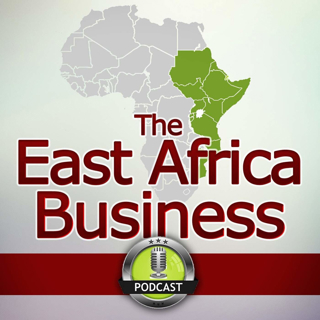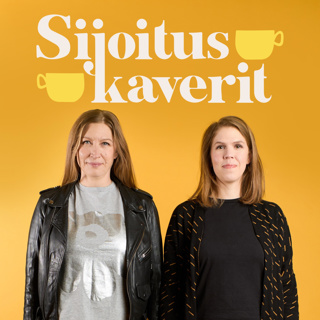
No need for uni. Moringa School's world class coding school in Kenya, with Audrey Cheng
Most business is about matching demand with supply. From her work as a Venture Capitalist talking to businesses about what would help them grow, Audrey found that resoundingly the answer was “tech talent”. Investigating the options available to students wanting to learn these skills, she found they were sub par. Moringa School is addressing the need by providing world class education in how to build apps at an affordable cost. We discuss the innovative teaching methodologies that they adopt, ways of breaching the skills gap in Kenya, and prospects for taking these vocational based higher education alternatives across the continent and into different skills. Our interview was on the balcony outside of their office and so it gets a little windy at times, but either way, I hope you enjoy. READ MORE AT:https://theeastafricabusinesspodcast.com/2017/04/26/coding-schools-a-world-class-higher-education-alternative-in-kenya-with-audrey-cheng-from-moringa-school/
26 Huhti 201729min

Setting boundaries: how Agrinfo's mapping technology overcomes pen and paper land disputes
Smallholder farmers are the majority of the East African population, but there are many issues that they face. Rose, who founded Agrinfo, is using ICT to help. Identifying some key problems for Tanzanian farmers she and her team are looking to improve the agriculture sector by utilising modern technology. We discuss the low number of farmers with legal right to their land, the process for mapping Tanzania and the benefits that come by knowing what is planted where. There’s a bird tweeting outside the window at the beginning of the episode, and so apologies if you find that distracting. READ MORE AT:https://theeastafricabusinesspodcast.com/2017/04/19/rural-mapping-bringing-technology-to-the-tanzanian-agriculture-sector-with-rose-funja-from-agrinfo/
19 Huhti 201733min

Training rats to save lives (no joke) in Tanzania, with Georgies Mgode from Apopo
Humans are good at a lot of business functions, but one where animals have got us beaten is at sniffing things out. Rats have the best sense of smell of all mammals and can detect landmines and turburculosis to a much higher accuracy and in a fraction of the time of the best detection technology that humans can manage. Apopo trains rats from birth and then sets them out to do the job of detecting things which humans struggle at. Georgies and I discuss the applications of Apopo rats, the school program that they go through and how it’s easier to train the Giant African Rat rather than a dog. This one is a lot of fun and so I hope you enjoy. READ MORE AT:https://theeastafricabusinesspodcast.com/2017/04/12/rats-training-rodents-for-humanitarian-purposes-with-georgies-mgode-from-apopo/
12 Huhti 201734min

Uber for ambulances. Why most Africans can't call 911 and how Flare solves this, with Caitlin Dolkart
There are some ideas that, when someone tells you about it, your first reaction is surprise that there even needs to be a business I had this reaction about Flare, which is improving how people get access to emergency care in Kenya. Described as “an Uber for ambulances” it is consolidating the 50 companies that exist in the country so that there is one place for patients to call to get fast emergency care. Essentially making a something akin to 999 (or 911 in the US). We discuss the current state of the emergency healthcare market across Africa, the stepped process in which they are deploying the app and educating the population that this is a service that can actually exist. It’s one of the most interesting conversations I’ve had and so I hope you enjoy READ MORE AT:https://theeastafricabusinesspodcast.com/2017/04/05/ambulances-creating-uber-for-emergency-healthcare-with-caitlin-dolkart-from-flare/
5 Huhti 201733min

Inuka Pap uses mobile money to help low-income savings groups, with Waweru Kuria
Cash is risky business, and in Kenya, mobile money is big. People living in rural areas are liable to have their life savings lost if it is kept under the mattress. Many engage in lending co-operatives whereby a community organisation acts as a bank for people who need money in an emergency. This is, however, pretty archaic and inefficient meaning people can’t get instant access to cash when they need it quick. Using a digital platform that connects mobile money to these rural co-operatives, Inuka Pap is making it possible for people to get access to the funds in an instant. Waweru and I discuss what the lending landscape looks like, their social mission of providing free insurance, and the blurred lines around whether they themselves are a bank or not. As a side note, the day after I interviewed Waweru he pitched Inuka Pap at Seedstars, a global start up competition, and won the title for Kenya! You’ll see that he has knack for storytelling. Also, a car alarm goes off in the background right at the end, so apologies for that… In any case, I hope you enjoy! READ MORE AT:https://theeastafricabusinesspodcast.com/2017/03/29/digital-rural-banking-using-mobile-money-for-co-operative-lending-with-waweru-kuria-from-inuka-pap/
29 Maalis 201743min

Escaping the rental poverty trap: how Tugende gives motorcycle taxi drivers the ability to own
A recurring theme across East Africa is how owning an asset is a path out of poverty. It’s a bit of a chicken and egg problem, as banks typically require an asset as collateral before giving a loan. Tugende gives people their first step on the ladder. Starting as a side project of some bikes that Michael bought for his motorcycle friends, Tugende has now grown into an organisation that thousands of drivers use on their path to ownership. Michael and I discuss the issues of the rental poverty trap, the process around how they mitigate risk, and how he sees is customers as micro venture capitalists. It’s a very insightful about the financing industry in Uganda, and across the region. I hope you enjoy. READ MORE AT:https://theeastafricabusinesspodcast.com/2017/03/15/lease-financing-giving-motorcycle-taxi-drivers-the-ability-to-own-with-michael-wilkerson-from-tugende/
15 Maalis 201733min

Creating linkages in agriculture to improve farmer incomes, with Maria Biswalo from Ninayo
A big issue in Tanzania, and indeed the rest of East Africa, is connecting agriculture buyers and sellers. The fact that produce goes bad because it can’t find a buyer is a real problemin terms of the incomes that farmers can receive. Ninayo is a marketplace where farmers can list their produce, giving buyers a place to search for goods. Maria and I discuss how the marketplace is being built, the plans for making revenue and how they are using Facebook to their advantage. We were in a cafe and so at some point you can hear people in the background. We’ve done our best to edit this out, but apologies if you find it distracting. READ MORE AT:https://theeastafricabusinesspodcast.com/2017/03/08/agriculture-marketplaces-building-a-platform-for-farmer-produce-in-tanzania-with-maria-biswalo-from-ninayo/
8 Maalis 201731min

How Lynk is building a "TaskRabbit for Kenya", with the founders Adam and Johannes
A huge amount of employment in East Africa exists in the informal sector. People often working on an ad hoc basis with little record of what they do. This means that it is difficult for workers to build a reputation, and for customers generate trust. Adam and Johannes at Lynk see a great opportunity to use technology to bring value in this broad sector. We talk about how the founding story of their services marketplace above a hardware store, the processes around matching customers and workers, and their vision for how data can bring benefits to whole sector. It’s a super interesting episode, and I hope you enjoy READ MORE AT:https://theeastafricabusinesspodcast.com/2017/03/01/service-marketplaces-taskrabbit-for-kenya-with-adam-and-johannes-from-lynk/
1 Maalis 201735min





















